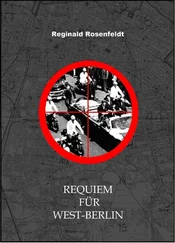Isaiah Berlin - Russian Thinkers
Здесь есть возможность читать онлайн «Isaiah Berlin - Russian Thinkers» весь текст электронной книги совершенно бесплатно (целиком полную версию без сокращений). В некоторых случаях можно слушать аудио, скачать через торрент в формате fb2 и присутствует краткое содержание. Год выпуска: 0101, Жанр: Старинная литература, на русском языке. Описание произведения, (предисловие) а так же отзывы посетителей доступны на портале библиотеки ЛибКат.
- Название:Russian Thinkers
- Автор:
- Жанр:
- Год:0101
- ISBN:нет данных
- Рейтинг книги:3 / 5. Голосов: 1
-
Избранное:Добавить в избранное
- Отзывы:
-
Ваша оценка:
- 60
- 1
- 2
- 3
- 4
- 5
Russian Thinkers: краткое содержание, описание и аннотация
Предлагаем к чтению аннотацию, описание, краткое содержание или предисловие (зависит от того, что написал сам автор книги «Russian Thinkers»). Если вы не нашли необходимую информацию о книге — напишите в комментариях, мы постараемся отыскать её.
Russian Thinkers — читать онлайн бесплатно полную книгу (весь текст) целиком
Ниже представлен текст книги, разбитый по страницам. Система сохранения места последней прочитанной страницы, позволяет с удобством читать онлайн бесплатно книгу «Russian Thinkers», без необходимости каждый раз заново искать на чём Вы остановились. Поставьте закладку, и сможете в любой момент перейти на страницу, на которой закончили чтение.
Интервал:
Закладка:
from disaster into the first available rabbit hole.
Uspensky's account is borne out by other evidence, perhaps most
vividly by the behaviour of Chaadaev. In 1 848, this remarkable man,
no longer a 'certified lunatic', was still living in Moscow. The
Te/esltop debacle of 1 836 had spread his fame. He seemed unbroken
by his misfortune. His pride, his originality, and his independence, the
charm and brilliance of his conversation, but above all his reputation
as a martyr in the cause of intellectual liberty, attracted and fascinated
even his political opponents. His salon was visited by both Russian
and eminent foreign visitors, who testify that until the blow fell in
1 848, he continued to express his pro-western sympathies with an
uncompromising and (considering the political atmosphere) astonishing
degree of freedom. The more extreme members of the Slavophil
brotherhood, especially the poet Y azykov, 1 attacked him from time
to time, and on one occasion virtually denounced him to the political
police. But his prestige and popularity were still so great that the
Third Department did not touch him, and he continued to receive a
variety of distinguished personalities, both Russian and foreign, in his
weekly salon. In 1 847 he expressed himself strongly against Gogol's
Selected Extracts from a Correspondence with Friends and i n a letter
to Alexander Turgenev damned it as a symptom of megalomania on
the part of that unhappy genius. Chaadaev was not a liberal, still
less a revolutionary: he was, if anything, a romantic conservative, an
1 G. I. Uspensky, Sod1iM11iya (St Petersburg, 1 889), vol. 1, pp. 175-6.
1 See the account in M. K. Lemke, op. cit. (p. u, note 1 above), p. 451.
14

R U S SIA AND 1 8 4 8
admirer of the Roman Church and the western tradition, and an
aristocratic opponent of the Slavophil obsession with eastern orthodoxy and Byzantium; he was a figure of the right, not the left, but he was an avowed and fearless critic of the regime. He was admired
above all for his individualism, his unbreakable will, his incorruptible
purity and strength of character, and his proud refusal to bend to
authority. In 1 849, this paladin of western civilisation suddenly wrote
to Khomyakov that Europe was in chaos, and in deep need of Russian
help, and spoke with much enthusiasm of the Emperor's bold initiative
in crushing the Hungarian revolution. While this might have been
put down to the horror of popular risings felt by many intellectuals at
this time, this is not the end of the story. In 1 8 5 1 , Herzen published
a book abroad containing a passionate encomium of Chaadaev.1 As
soon as he heard of it, Chaadaev wrote to the head of the political
police, saying that he had learnt with annoyance and indignation that
he had been praised by so notorious a miscreant, and followed this with
sentiments of the most abject loyalty to the Tsar as an instrument of
the divine will sent to restore order in the world. To his nephew and
confidant, who asked him 'Pourquoi cette bassesse gratuite?', he
merely observed that, after all, 'One must save one's skin.' This act
of apparently cynical self-abasement on the part of the proudest and
most liberty-loving man in Russia of his time is tragic evidence of the
effect of protracted repression upon those members of the older
generation of aristocratic rebels who, by some miracle, had escaped
Siberia or the gallows.
This was the atmosphere in which the famous Petrashevsky case
was tried. Its main interest consists in the fact that it is the only
serious conspiracy under the direct influence of western ideas to be
found in Russia at that time. When Herzen heard the news, it was
'like the olive branch, which the dove brought to Noah's Ark'- the
first glimmering of hope after the Rood.2 A good deal has been written
about this case by those involved in it-among them Dostoevsky, who
was sent to Siberia for complicity in it. Dostoevsky, who in later years
detested every form of radicalism and socialism (and indeed secularism
in general) plainly tried to minimise his own part in it, and perpetrated
a celebrated caricature of revolutionary conspiracy in The Posussed.
1 Du Jlotlop�mml ties iJiti rlr?oluliotllltlirts til Ruuit (Paris, 1 8 5 1).
I A. I. Herzen, Soln-t111it sod1i1U11ii (see p. of.. note 1 above), vo]. 10,
P· 33 5·
I S
R U SS I AN T H I N KE R S
Baron Korf, one of the committee of inquiry into the Petrashevsky
affair, later said that the plot was not as serious or as widespread as
had been alleged-that it was mainly 'a conspiracy of ideas'. In the
light of later evidence, and in particular of the publication by the
Soviet Government of three volumes of documents, 1 this verdict may
be doubted. There is, of course, a sense in which there was no formal
conspiracy. All that had happened was that a certain number of
disaffected young men gathered together at regular intervals in two
or three houses and discussed the possibility of reform. It is also true
that in spite of the devotion of Butashevich-Petrashevsky himself to
the ideas of Fourier (the story that he set up a small phalanstery on
his estate for his peasants, who set fire to it almost immediately as an
invention of the devil, is unsupported by evidence) these groups were
not united by any clear body of principles accepted by them all: so,
for instance, Mombelli went no further than the desire to create
mutual aid institutions, not so much for the workers or peasants as
for members of the middle class like himself; Akhsharumov, Evropeus,
Pleshcheev were Christian Socialists; A. P. Milyukov's only crime
was apparently to have translated Lamennais. Balasoglo was a kindly
and impressionable young man, oppressed by the horrors of the Russian
social order-no more and no less than, for example, Gogo! himselfwho desired reform and improvement on mildly populist lines similar to the ideas of the more romantic Slavophils, and indeed not too unlike
the neo-medievalist nostalgia of such English writers as Cobbett, or
William Morris. Indeed, Petrashevsky's encyclopedic dictionary,
which contained 'subversive' articles disguised as scientific information,
resembles nothing so much as Cobbett's famous grammar. Nevertheless, these groups differed from the casual gatherings of such radical men of letters as Panaev, Korsh, Nekrasov and even Belinsky. Some,
at any rate, of the participants met for the specific purpose of considering concrete ideas of how to foment a rebeliion against the existing regime.
These ideas may have been impracticable, and may have contained
in them much that was fantastic drawn from the French Utopians
and other 'unscientific' sources, but their purpose was not the reform
but the overthrow of the regime, and the establishment of a . revolutionary government. Dostoevsky's descriptions in A Writer's Diary and elsewhere make it clear that Speshnev, for example, was by
1 Dtlo ptlrt�shtllltfl (Moscow/Leningrad, 1937, 19-f.l, 19S 1).
J6
RU S S I A AND 1 8 4 8
temperament and intention a genuine revolutionary agitator, who
believed in conspiracy at least as seriously as Bakunin (who disliked
him) and attended these discussion groups with a practical purpose.
The portrait of him as Stavrogin in The Possessed strongly stresses
this aspect. Similarly, Durov and Grigoriev and one or two others
Читать дальшеИнтервал:
Закладка:
Похожие книги на «Russian Thinkers»
Представляем Вашему вниманию похожие книги на «Russian Thinkers» списком для выбора. Мы отобрали схожую по названию и смыслу литературу в надежде предоставить читателям больше вариантов отыскать новые, интересные, ещё непрочитанные произведения.
Обсуждение, отзывы о книге «Russian Thinkers» и просто собственные мнения читателей. Оставьте ваши комментарии, напишите, что Вы думаете о произведении, его смысле или главных героях. Укажите что конкретно понравилось, а что нет, и почему Вы так считаете.










